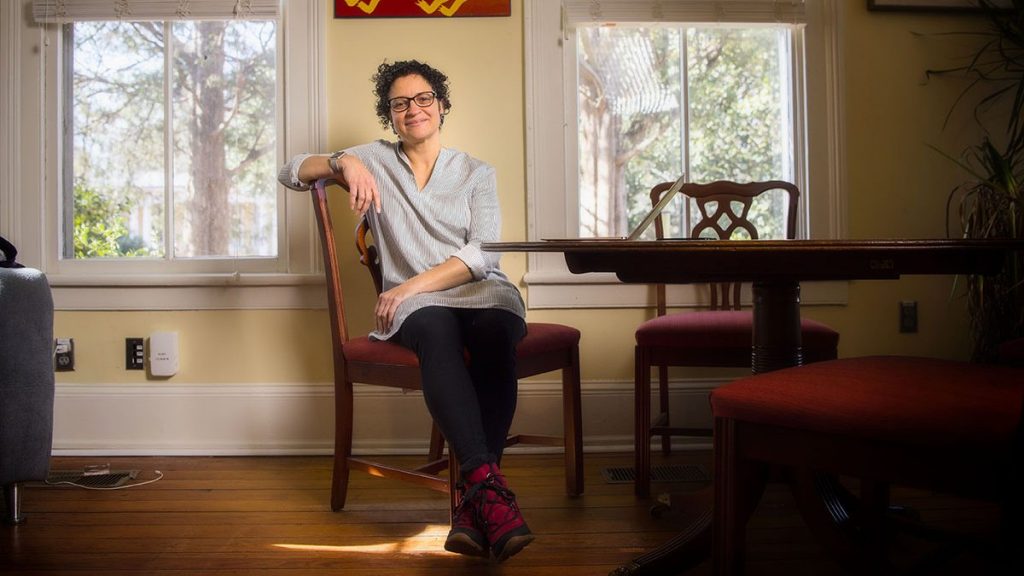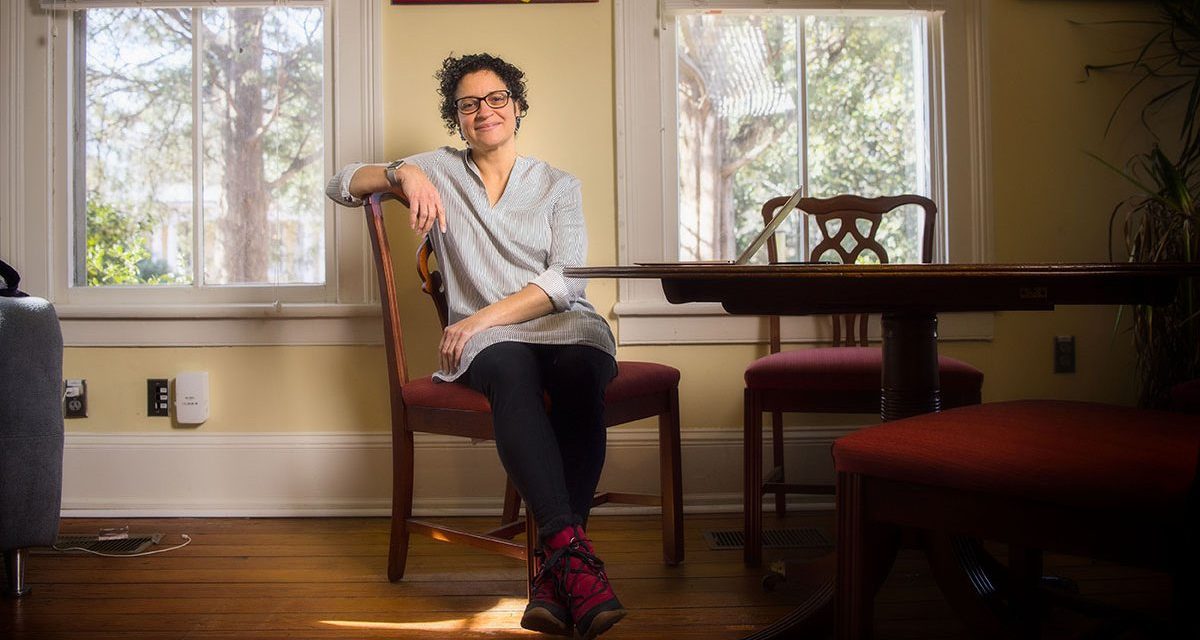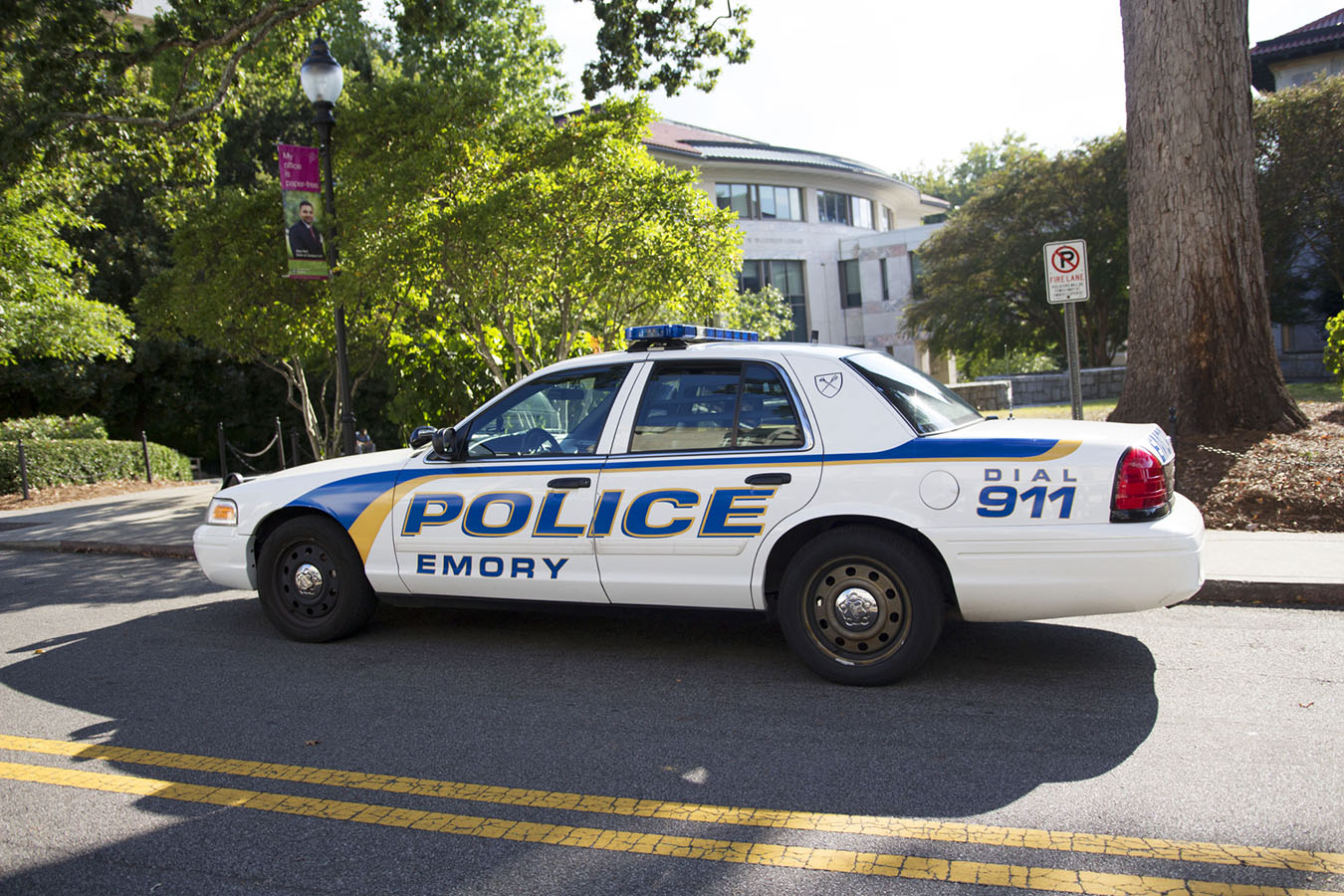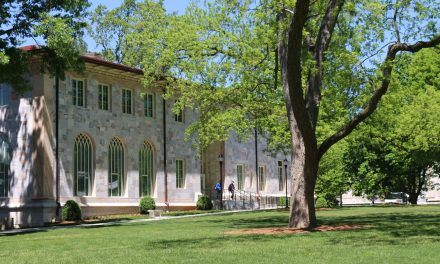Emory College named historian and filmmaker Malinda Maynor Lowery, a member of the Lumbee Tribe, as the second Cahoon Family Professor in American History. Lowery will become the History Department’s only scholar of the history of Indigenous people in the U.S.
Coming from the University of North Carolina at Chapel Hill, Lowery has served as an associate professor of history since 2012 and the director of the Center for the Study of the American South since 2017.
At Emory, Lowery hopes to not just do the work she was “trained to do,” but make it possible for others to engage in Native American studies. In “Legal History of Native Peoples,” the class Lowery will be teaching in the fall, she hopes to achieve this goal. Lowery said she’s also looking forward to thinking alongside faculty and students from departments across the University about how Indigenous studies can present “a form of ethics” everyone can learn from.
“I want to make sure that anybody who understands the way American society works can’t do that without thinking about Native people,” Lowery explained. “Not only were we here first, but we’ve been here always. Many of the things that have been built here have been things that we originated, but our ownership of it has been denied.”

Malinda Maynor Lowery. Photo courtesy of the University of North Carolina at Chapel Hill
Emory has recently expanded efforts to create a more inclusive environment for Indigenous students. The Office of Undergraduate Admission hosted the Native American Student Symposium in 2018 and the University produced a 2019 report about Indigenous students’ experiences at Emory. The University has also worked since 2017 on establishing the Native American Initiative, an effort led by professors and administration to “amplify Native voices on campus” and create “more visibility and awareness of Native American and Alaska Native issues.”
Many universities “don’t open the door” for student exploration into Native American and Indigenous studies, Lowery noted. The possibility for Lowery to “convene important conversations” and move the work of Native American studies forward attracted her to Emory.
“At Emory, they’ve been working … to create opportunities for people like me and also for more Native undergrads,” Lowery said. “The chance to just participate in that work is really appealing.”
The decision to search for a Native American scholar accompanied the University’s ongoing efforts to expand course offerings to include a more diverse array of academic studies.
Three new history professors began teaching at Emory in fall 2019, composing the History Department’s most recent cluster hire focused on race, ethnicity and inequality in the U.S. Cluster hires are when university departments hire faculty whose work revolves around a similar theme, Associate Professor of History Daniel LaChance, who served as chair of the cluster hire committee, explained.
The History Department’s recent cluster hire reserved positions for a specialist whose research connected the U.S. to Asia, a scholar whose work focused on the pre-20th century era and a professor whose work focused on race, ethnicity and inequality in the 20th century. Assistant Professors of History Chris Suh, Maria Montalvo and Carl Suddler were selected for these positions, respectively.
While it is illegal to make hiring decisions on the basis of race, LaChance said the hope was for the search to yield faculty of color who had strong credentials and were committed to teaching and mentoring a diverse student body.
“Emory isn’t where it should be in terms of having a faculty that reflects the diversity in our wider society and in our student body,” LaChance said. “It remains a really clear priority for us that in order to be a cutting edge department … we need to reflect that student body and we’re not there yet.”
When the donor for the Cahoon Family Chair in American History decided to endow a second chair, LaChance said the History Department, with consent of the donor, chose to search for a Native American specialist “to fill the gap” in the department’s curriculum of American history.
Lowery explained that it’s essential for Native Americans to be included in the discussion of American history because they have always been part of the nation’s fabric, but the nation was “created to justify the erasure” of Indigenous people.
“A long tradition of American thought says that Native people have been savages, uncivilized and not worthy of examination or even of existence,” Lowery said. “It’s not that we haven’t had knowledge to study. … Culturally, our nation has attempted to erase indigenous people in order to justify its own existence.”
Editor-in-Chief | Matthew Chupack (he/him, 24C) is from Northbrook, Illinois, majoring in sociology & religion and minoring in community building & social change on a pre-law track. Outside of the Wheel, Chupack serves on the Emory College Honor Council, is vice president of Behind the Glass: Immigration Reflections, Treasurer of Omicron Delta Kappa leadership honor society and an RA in Dobbs Hall. In his free time, he enjoys trying new restaurants around Atlanta, catching up on pop culture news and listening to country music.







